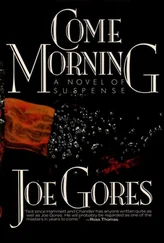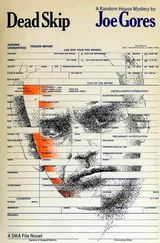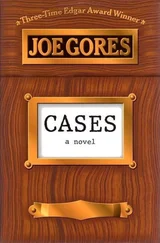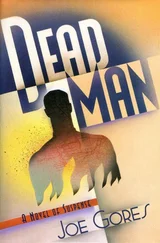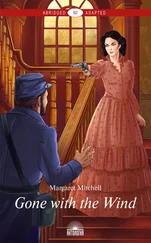She could. She wasn’t. Hell. Scratch Donna Payne.
It was a big rambling ranch-style house set back against the elegantly barbered brow of a hill off exclusive Glen Alpine in Oakland’s Piedmont district. Kearny parked his station wagon and pressed the button on the talk box set twenty feet back from the wrought-iron gates electrically operated from inside the house. On the side of the spacious graveled area outside the gates was a modernistic white light box with the word hawkley down the front in black letters which could be illuminated at night.
“What is it?” asked a speaker-distorted voice.
“Dan Kearny to see Counselor Hawkley.”
“Just a moment.”
The morning sky was overcast; yesterday’s heat had broken. A tatterdemalion burst of bush tits, like scraps of blown paper, landed in the pyrocantha bushes flanking the drive to chatter in soft excitement for a few moments before tumbling out and away again.
One of the twelve-foot gates began to swing open majestically, as the talk box said, “Don’t worry, the dogs are in.”
Kearny, who put dogs pretty far down the list of things he worried about, walked up the gravel drive to the house. The door of the enclosed veranda which ran the length of the house opened before he got to it.
“Dan Kearny!”
Hawkley was standing just inside the door, beaming, six-three and a hundred and sixty pounds, tops, seventy-five years old if he was a day. He wore a brown three-piece suit with a gold watch chain looped across his narrow gut. What was a man like Hawkley doing still involved with the mob? Or maybe this $300,000 house in the Oakland hills answered the question.
“Counselor.” Kearny nodded. They shook hands.
“Little early in the day for Wild Turkey, but how about some coffee in the breakfast room? It’s Venezuelan, I buy it whole-bean and grind it fresh.”
Kearny followed the tall stooped figure down a carpeted hall to a huge bright kitchen in yellow set off by the soft tones of hardwood cabinets. A black maid was scouring the stainless-steel sink.
“Savannah Lee,” said Hawkley. “Coffee.”
The breakfast nook was done in blondewood furniture with green cushions. Floor-to-ceiling glass on three sides, sliding panels which opened on the rear patio. A red hummingbird feeder hung from one limb of an ornamental red Japanese maple, a regular bird feeder on the branch of a flowering cherry.
Hawkley waved a hand at them. “Don’t get much except spinnies and jays this time of year. When they’re nesting in the spring, house finches and once in a while a rufous-sided towhee. And of course robins and catbirds.”
“Well, you’ve answered one question,” said Kearny as they sat down. “You’re talking too much about too little not to know why I’m here. Spinnies?”
“Sparrows. That’s what we called ’em in the Midwest when I was a kid.” He chuckled reminiscently and took a long cigar from his vest pocket. Savannah Lee came in with a bone-china coffee service on a silver tray. As she poured, Hawkley admitted, “Can’t say as I’m totally unfamiliar with the State’s suit.”
“What’s the big idea? Somebody had to whisper in their ear.”
“Norbert.” Hawkley bit the end from his cigar.
Kearny lit a cigarette, saying, “Norbert could set off a bomb on the front lawn of the state legislature and nobody would hear it.”
Hawkley chuckled again in his cultivated folksy manner, which disarmed juries and, at times, judges. “He’s awful, ain’t he? Still, my sister’s boy and all. Try to tell her that...” He puffed clouds of aromatic cigar smoke. “You ever met this Pivarski feller?”
“Nope.”
“A big dumb Polack truck driver. Came to Norbert when you got the attachment on his wages. Norbert dreamed up this idea of two hundred dollars to be held in trust until a court decided whether the deficiency judgment would stand up. Then damned if your girl, what’s-her-name, didn’t accept the money and—”
“Kathy Onoda.”
“Right you are. When she went ahead and took it, and signed Norbert’s letter.” He shook his age-frosted head. “Well...”
“Convenient, isn’t it?” Kearny had let calculated disbelief seep into his tone.
“Convenient?”
“We buried Kathy Onoda on Monday.”
Hawkley’s eyes narrowed in the tanned, leathery face. He said, as if to himself, “That explains why the State’s so all-fired sure they’ll get your license over this.”
“You’re saying the whole thing originated in Sacramento?”
Hawkley refilled their cups from the silver urn. “Don’t twist my words, young feller. When Norbert saw you were going to treat that $200 as a payment, why, of course he filed a formal complaint with the state licensing agency.”
“And I thought you people owed me one after Phil Fazzino,” said Kearny with deliberate bitterness.
“We do. That’s why I ain’t done anything more than advise Norbert on this, when he asked me.”
Kearny stubbed out his half-smoked cigarette. He said casually, “But I suppose you’ll just happen to come along to the hearing before the licensing commission next week, and Norbert will just happen to testify on behalf of—”
“Hell, I won’t be there,” exclaimed Hawkley. “Neither will Norbert, come to that. Or Pivarski. I grant you it started with Norbert’s complaint, but the State of California is the one bringing the charges.” He was on his feet, following Kearny’s lead, and asked, concerned, “No hard feelings?”
“Your man has to represent his client.” Then, in apparent afterthought, Kearny added, “So I guess you wouldn’t have any objection to accepting Pivarski’s money, plus reasonable costs, interest and attorney’s fees, to get the file closed.”
“Not an objection in the world,” said Hawkley. “I can’t speak on behalf of Norbert, but I wouldn’t see him objecting either.”
On his way in, Kearny called Oakland Control, so Giselle was waiting when he got there. As he had instructed on the radio, she had Heslip and Ballard on tap in the San Francisco office, and Hec Tranquillini had juggled his court schedule so he could get there for a strategy session also. After he arrived, the five of them moved out on the little porch opening off the back office used by the inside collectors. The fog had lifted and the freeway traffic, booming by a hundred feet away on the raised skyway, ensured absolute privacy.
“What a place for a mad sniper!” Tranquillini exclaimed. He raised an imaginary rifle to squeeze off a series of imaginary rounds at the zipping autos.
“The world lost a great mass murderer when you passed the bar,” said Giselle.
“Gimme time, sister,” he said breathily in his best Al Capone manner. “I might make it yet.”
“Only with your bills for service,” said Kearny. He turned to Ballard. “So Donna Payne wasn’t working that Friday afternoon?”
“Not after five o’clock. Simson might have been, but—”
“How can she pin it down so exactly?”
“She and Simson split late Fridays by the month. But Kathy didn’t always keep the collector on duty after five-thirty.”
“Giselle told me no state investigators had been around to the Oakland office asking questions, but I want you to get hold of Payne again and ask her if the State Licensing Bureau has—”
“It hasn’t.”
“You asked?” Kearny was surprised.
“It bothered me that they had talked with the wrong Jeffrey L. Simson out there at the motel in San Bruno.”
“You think she’s straight?” asked Tranquillini.
“Sure. She’s shacking up with a bartender out of Reno who’s working down here now. They’re going back to Nevada next month.”
Читать дальше
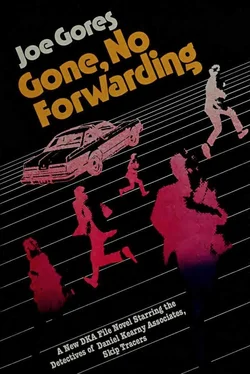


![Эрик Рассел - Подарок дядюшки Джо [=Подарок от Джо] (ёфицировано)](/books/65161/erik-rassel-podarok-dyadyushki-dzho-podarok-ot-dzho-thumb.webp)



